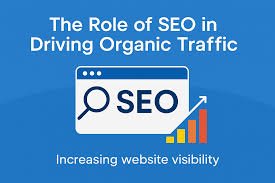SEO continues to be a critical component of digital marketing in 2025. However, businesses often make mistakes that hinder their search engine performance. Understanding common SEO pitfalls and implementing strategies to avoid them ensures higher rankings, increased traffic, and improved user experience.
Ignoring Keyword Research
Many businesses skip proper keyword research, targeting irrelevant or overly competitive terms. Without understanding what users search for, content may fail to attract the right audience. Avoid this by conducting thorough keyword research, analyzing search intent, and focusing on relevant long-tail keywords that align with your audience.
Overstuffing Keywords
Keyword stuffing was once a common tactic but now harms SEO. Overusing keywords can make content unreadable and reduce rankings. Instead, integrate keywords naturally, using variations and semantic terms. Focus on providing value while signaling relevance to search engines.
Neglecting Mobile Optimization
Mobile traffic dominates online searches, and a non-responsive site can harm rankings. Slow-loading or poorly formatted mobile pages frustrate users and increase bounce rates. Ensure your website is mobile-friendly, loads quickly, and provides seamless navigation on all devices.
Ignoring Technical SEO
Many websites suffer from technical issues such as broken links, crawl errors, duplicate content, or poor site architecture. These issues prevent search engines from indexing pages effectively. Conduct regular technical SEO audits and fix errors promptly to maintain site health and improve performance.
Poor Content Quality
Low-quality or thin content fails to engage users and reduces search engine credibility. Avoid generic, uninformative content by producing in-depth, valuable, and original material. High-quality content encourages shares, backlinks, and longer site visits, boosting rankings.
Neglecting On-Page SEO
Ignoring meta titles, descriptions, headers, and alt text can limit SEO performance. On-page elements help search engines understand content relevance. Optimize titles, headings, and images for keywords and readability to improve visibility and user experience.
Failing to Build Quality Backlinks
Backlinks are crucial for authority and rankings. Relying on low-quality links or neglecting link-building efforts can harm SEO. Focus on earning backlinks from reputable, relevant websites through high-quality content, collaborations, and outreach campaigns.
Not Optimizing for User Experience
SEO isn’t just about search engines; user experience matters. Poor navigation, slow pages, intrusive ads, and confusing layouts can increase bounce rates. Prioritize intuitive design, fast loading times, and easy-to-read content to retain visitors and improve engagement metrics.
Ignoring Analytics and Performance Metrics
Without monitoring SEO performance, mistakes go unnoticed. Failing to track traffic, rankings, or conversions limits optimization opportunities. Use tools like Google Analytics and Search Console to measure performance, identify issues, and adjust strategies based on data.

Overlooking Local and Voice SEO
Many businesses neglect local search optimization and voice search queries. Missing these opportunities can limit visibility for nearby or mobile users. Optimize for local SEO with Google Business Profile, location-based keywords, and natural language queries to reach wider audiences.
Conclusion
Avoiding common SEO mistakes is essential for success in 2025. By conducting proper keyword research, creating quality content, optimizing for mobile and technical SEO, building authoritative backlinks, enhancing user experience, monitoring analytics, and addressing local and voice search, businesses can improve rankings, attract relevant traffic, and achieve long-term SEO success. Staying proactive and continuously refining SEO strategies ensures sustainable online growth.










